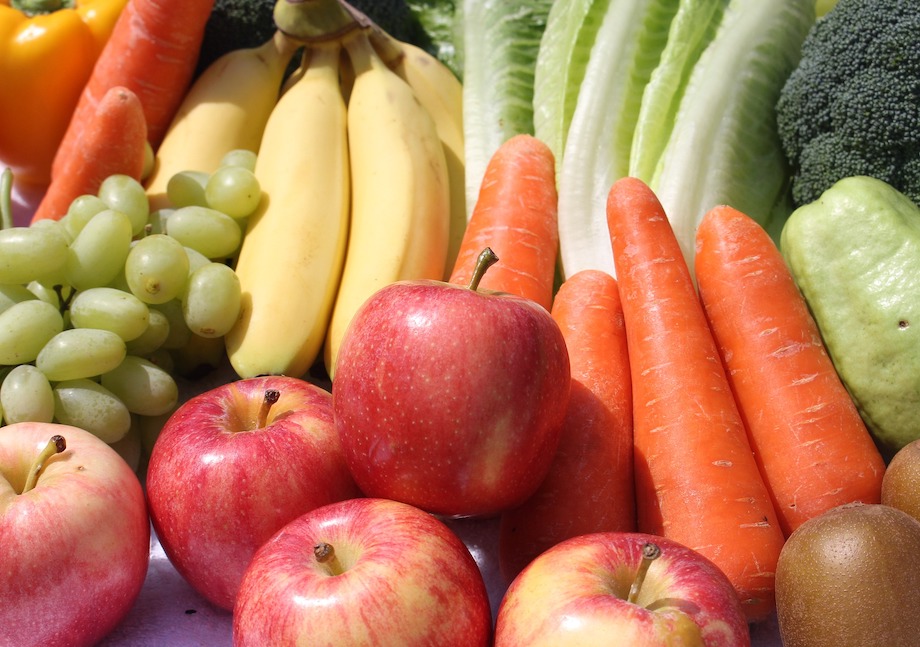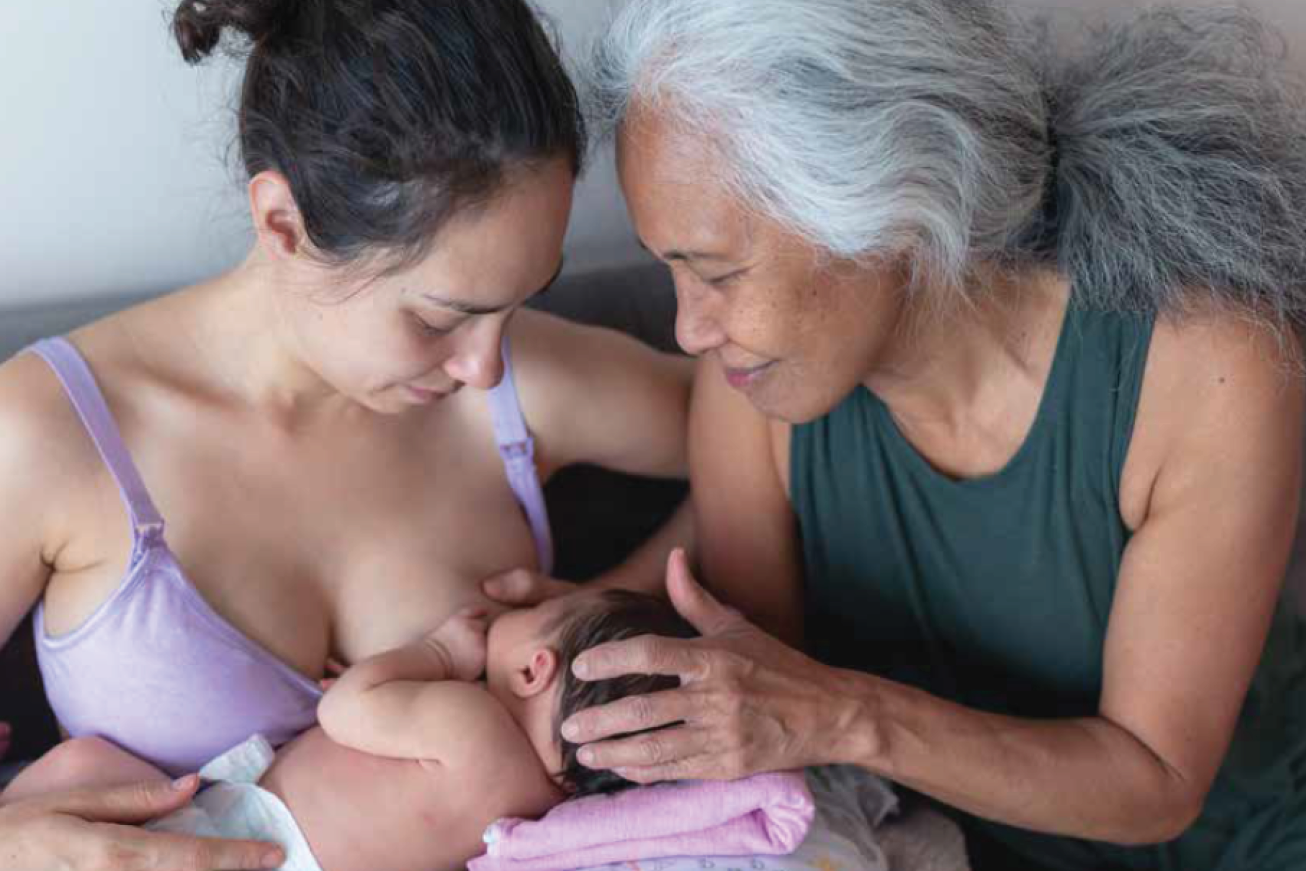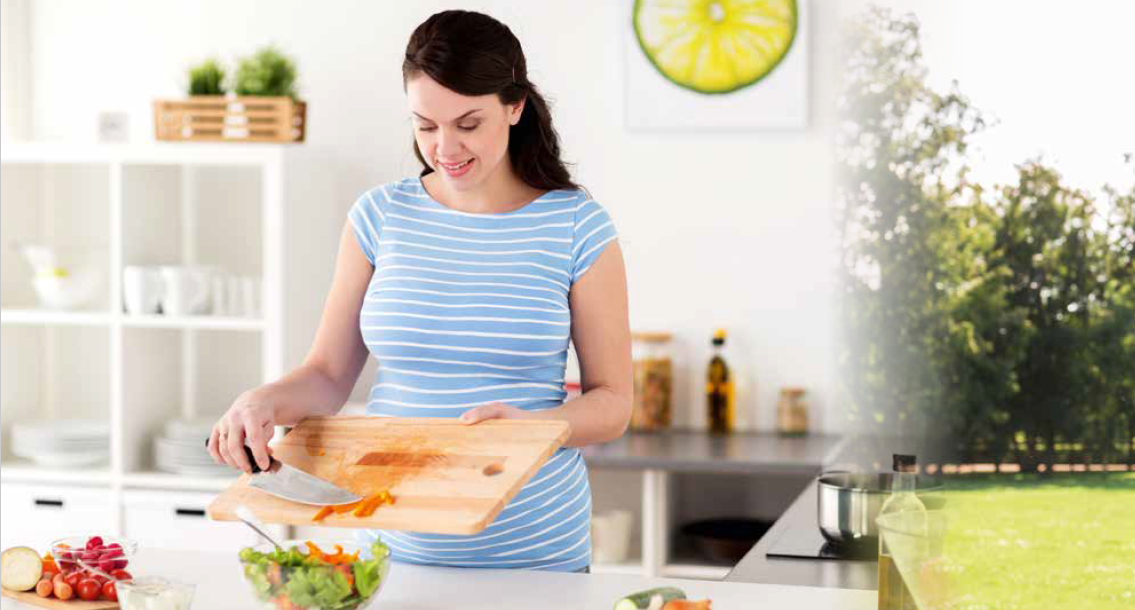
Essential vitamins and minerals
Your own health and that of your developing baby relies on a regular supply of vitamins and minerals, most of which have to be obtained from the food you eat. The chart below is a guide to the best sources. Vitamins and minerals tend to break down during cooking and processing so choose food that is as fresh as possible.
|
BEST SOURCES |
BENEFITS | |
|
VITAMIN A | Orange fruit and vegetables, peaches, melons, mangoes, apricots, carrots and peppers; green vegetables; egg yolk; oily fish such as herring | Antioxidant properties; important for healthy eyes, hair, skin and bones; helps fight infections. Can be toxic in excess (do not take supplements or eat offal) |
|
B VITAMINS | Poultry, pork, beef and lamb; cod; dairy products; eggs; brewer’s yeast; green vegetables, such as brussel sprouts and cabbage; nuts, especially pecan nuts, peanuts and walnuts; fortified cereals; wholemeal bread and pasta; oranges; mangos; bananas, avocados; figs; sesame seeds | Helps energy production and protein release from food; maintains healthy skin, hair and nails; essential for nervous and brain function; assists in the production of antibodies to fight infection and red oxygen-carrying haemoglobin in the blood. B12 supplements may be needed if you don’t eat meat or dairy |
|
FOLIC ACID |
Green vegetables such as broccoli, spinach and green beans; fortified cereals, pulses (peas and chick peas) and yeast extract such as Marmite |
Helps prevent neural tube defects in the fetus; aids red blood cell formation and protein break down in the body (400 mcg supplement recommended daily) |
|
VITAMIN C |
Kiwi fruit, citrus fruit, sweet peppers, blackcurrants, potatoes (especially the skins) and tomatoes | Assists growth and repair of tissues (skin, teeth and bones); aids absorption; antioxidant properties |
|
VITAMIN D |
Eggs; oily fish such as herring, salmon and sardines; butter; margarine; cheese; also provided through exposure to natural light |
Enhances calcium absorption; increases the rate of mineral deposits in the bones; can be toxic if taken in excess (do not take supplements) |
|
VITAMIN E |
Eggs; nuts, such as hazelnuts, pine nuts and almonds; sunflower seeds; green vegetables such as broccoli and spinach; avocado; vegetable oils | Maintains healthy skin, nerves, muscles, red blood cells, and heart; important antioxidant protects against free radicals, which can damage body tissues |
|
IRON |
Red meat; eggs; apricots, raisins and prunes; tinned sardines, crab and tuna in oil; fortified cereals; sesame seeds (offal such as liver and kidneys is rich in iron but should be avoided in pregnancy) |
Essential for oxygen-carrying haemoglobin production in red blood cells of mother and fetus; builds and maintains muscles |
|
CALCIUM |
Dairy products; eggs; small bony fish such as sardines; soya products; most nuts; fortified cereals; leafy green vegetables, especially broccoli |
Essential for healthy bones, teeth and muscles in mother and fetus; also helps with conduction of nerve impulses |
|
ZINC |
Beef; seafood; nuts; onions; sweetcorn; bananas; wholegrain foods (iron-rich foods block absorption) |
Necessary for growth and energy; aids healing of wounds; supports the immune system |





